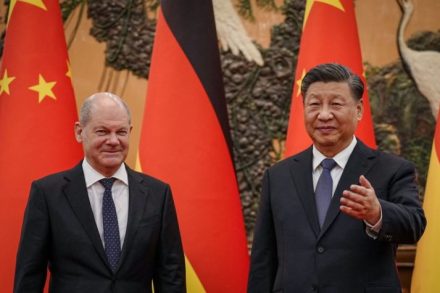Germany needs to break its dependence on China
Back in February, Olaf Scholz gave one of the most important speeches in his country’s post-Cold War history. In it, the German Chancellor announced that the Russian invasion of Ukraine had produced a zeitenwende, or turning point, and that German policy must adapt. No longer could his nation live on the so-called peace dividend that the West has enjoyed for nearly three decades, and no longer could Germany be dependent on cheap Russian gas. Within three days of Vladimir Putin’s invasion Berlin had U-turned and promised to give Ukraine lethal aid, to spend a one-off $110 billion on the Bundeswehr (the German military), and to spend 2 per cent of GDP on defence. The failed





















